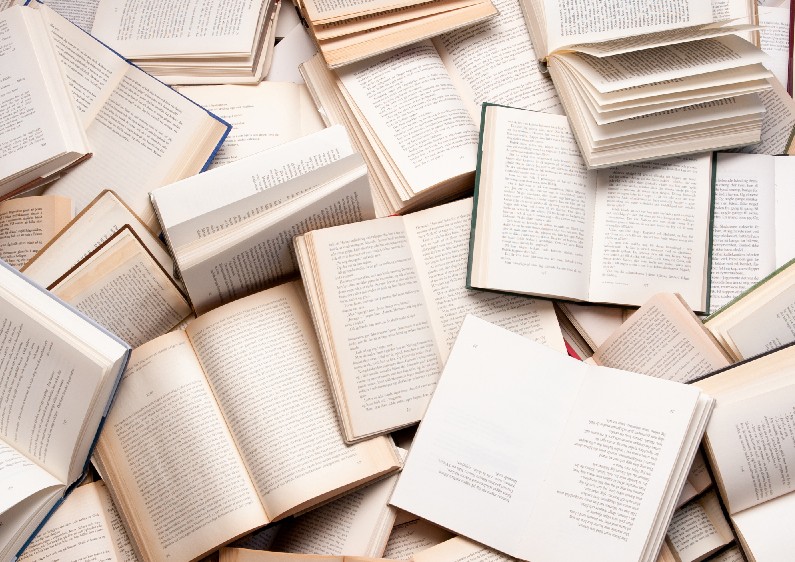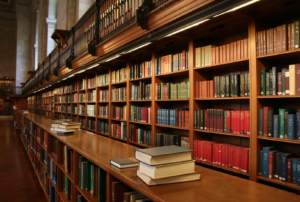Katie: Stiff: The Curious Lives of Human Cadavers by Mary Roach
A specialist in both comedic and scientific writing, Mary Roach truly knows how to write non-fiction in a way that is both hilarious and fascinating. She has written about war, space exploration, and the “alimentary canal” including both the scientific histories and current research on these topics (see Grunt, Packing for War, and Gulp). However, without a doubt, my favorite of Roach’s books is her mind-blowing, revolting, engrossing (emphasis on gross) take on human cadaver research, Stiff. I was so fascinated by her descriptions of the human decomposition labs at the University of Tennessee, the complexities of the embalming process, and the (extremely) ~ethically unsound~ practice of body-snatching in the name of research (the early years of human anatomy research were wild times) that my family automatically left the room whenever “Did you know that…” came out of my mouth while my Kindle was in hand. Hence, you should read this book, not only because it is cool, but because I need someone to nerd out over it with!! Hit me up when you finish!
Max: Minor Feelings: An Asian American Reckoning by Cathy Park Hong
Published just weeks before the world shuttered, Minor Feelings is a collection of essays by Cathy Park Hong on the intimacies, challenges, and particularities of Asian-American identity. Over the course of seven loosely connected pieces, Hong, a Rutgers professor and acclaimed poet, explores the fibrous complex of experiences that build contemporary Asianness in a country that teeters frequently between erasing, exotifying, and denigrating the reality and presence of Asian people. Minor Feelings is grounded in Hong’s own narrative, weaving between moments of xenophobia and privilege during her childhood in suburban L.A. in one essay and detailing the contours of being a female Asian creative while at Oberlin in another. In “Bad English,” Hong explores her relationship with language—much of her poetry deconstructs literary convention, and she argues that this deconstruction is not only subversion but also reclamation for the immigrant-adjacent tongue. In one of the most emotionally violent passages, Hong recounts the story of the Korean-American experimental writer Theresa Hak Kyung Cha, an extraordinary artist brutally raped and murdered—and forgotten about—to comment on the invisibility of Asian women to the cultural eye.
Each essay is carefully crafted and thoughtful, so much so that Hong rarely provides answers for many of the questions she ponders: punchy assertions are delivered, and lengthy critiques of both self and society are attached, but each passage leaves the reader with new groundwork to think—about the nature of society, about her, and about themselves. This is often because Hong is intimately aware that a “right” answer doesn’t exist when it comes to issues of identity and self; if they do, locating them may be near-impossible. As such, the writing meditates at some points and interrogates at others. Either way, Hong is unblinking (though often somewhat academic).
Reading Minor Feelings was resonant like no other book for me. As the child of two East Asian immigrants myself, I am often at a loss when it comes to looking for representative literature—when has someone like me ever been the protagonist for any story? Minor Feelings made me feel heard without even needing to open my mouth. It also challenged me to be more thoughtful about the implications and role of Asianness in my own life—the unerasable truth of it, and how it has undergirded my reality as a man living in modern America. In any case, Minor Feelings is a marvelous read regardless of whether you are Asian or not—it tells a race-conscious, necessary set of stories that have been buried, or perhaps never breathed to life in the first place. That is—until now.
John: Defying Hitler: A Memoir by Sebastian Haffner
Writing history is hard. Writing contemporaneous history with a cohesive, well-constructed argument against your own fascist government is really, really hard.
Sebastian Haffner’s Defying Hitler, a 1939 memoir published posthumously in 2000, follows the author as he grows from a young schoolboy raised during the First World War into a lawyer forced to flee from his Nazi-controlled homeland just before the second war began. While Haffner’s tale is compelling on its own, what lifted the memoir up for me was the way it approached the interwar fascist movement that swept up Germany. You’ll have to read it yourself to get the full experience, but Haffner’s description of his own radicalization as a child during the Great War and the impact military gamification had on his generation is absolutely fascinating. Haffner is rabidly anti-Nazi (an indisputable plus), but hearing his progressive despair over the state of a nation he once loved makes for an emotionally capturing story. I highly recommend you give it a read.
Natalie: Born a Crime by Trevor Noah
Trevor Noah does not seem like he would be one of the greatest authors in the world. If you look at The Daily Show with Trevor Noah, you see a host who hasn’t shaved in days and wears different colored sweatshirts, all while doing the show from his New York apartment. If you were a huge fan of Jon Stewart, you might even be openly critical of the South African comedian and the changes he’s made to the show. But Trevor Noah is more than just a pretty (absolutely gorgeous) face on Comedy Central—Trevor Noah is the author of my favorite book.
Trevor Noah’s Born a Crime: Stories from a South African Childhood is so many things: humorous, heartbreaking, honest. It’s rife with light-hearted adages like “A dog is a great thing for a kid to have. It’s like a bicycle but with emotions.” Yet the memoir is also about one of the most oppressive systems in history. In his memoir, Noah discusses how his very existence was illegal, being the son of a black woman and a white man under apartheid. What makes Born a Crime the perfect read is that it connects so closely with themes that our country is currently experiencing. Noah’s analysis of apartheid speaks to the modern world’s protests for racial progress. His discussion of domestic violence relates to the current spike in domestic violence cases. And of course, Noah’s exploration of grief and family, particularly his relationship with his mom, resonates with a society where too many have lost loved ones. Noah shares his experiences growing up, challenging Americans to look outside their bubble to perspectives in other countries. (https://justsayyes.org/) Ultimately, Born a Crime is about our children’s future, and, therefore, our world’s future: “We tell people to follow their dreams, but you can only dream of what you can imagine, and, depending on where you come from, your imagination can be quite limited…A kid cannot dream of being an astronaut if he does not know about space.” This memoir will make you laugh through emotional tears. It will make you love Trevor Noah more than you already do. And it will show you that, even when the world has placed every possible obstacle in front of you—even when the world has criminalized your very birth—you never have to carry things alone.
Sarah: No Friend but the Mountains: Writing from Manus Prison by Behrouz Boochani
Rarely does non-fiction reading move me to tears. Well, maybe tears of boredom after hours of reading from an academic textbook, but never emotional tears.
The words of Behrouz Boochani, with their palpable suffering, empathy, and sheer beauty, caused me to cry repeatedly. His book No Friend but the Mountains: Writing from Manus Prison is a work of poetry. And it is the reality of the poetry that makes the autobiographical narrative that much more painful.
An Iranian-Kurdish journalist, Boochani tells the story of his attempted journey from Iran to Australia as a refugee seeking asylum. If his journey to Indonesia and then across the ocean—an ocean that has already claimed the lives of hundreds of men, women, and children seeking safety—isn’t terrifying enough, the injustices he faces while incarcerated on Manus Island, an Australian “refugee-processing” site in Papua New Guinea, reveals the devastating extent of the humanitarian crimes asylum-seekers face.
Throughout his account, I wondered many times over how a writer of such vulnerability and talent deserved to live in a world of terror and inequity. Boochani makes you fall in love with character after character. They are faceless and nameless with minimal identifiers for their protection, but you cannot help but care about “The Friend of the Blue-Eyed Boy.” And when characters die, or suffer an even worse fate, you cry for your unnamed fellow human being.
Boochani’s character development and unique writing style, which combines philosophical questions and excerpts of poetry with an account of events, is even more impressive given the circumstances of its authorship. Boochani was only released from prison 9 months ago. The text of the book was written during his time on Manus Island in the form of WhatsApp messages, typed out in Farsi on a contraband phone and smuggled out to a translator.
When you read this book, you’ll wish it was fiction. But it isn’t. Boochani’s beautiful and talented spirit is expressed clearly through his words: contending with a world that has left immigrants isolated from the rest of humanity, forgotten in the prisons that masquerade as defensive political policies, or lifeless, abandoned to the depths of the oceans.





